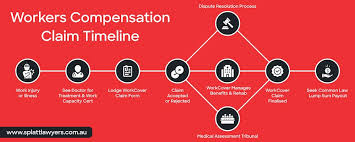In recent years, mental health in the workplace has become a much more open and acknowledged topic. Yet, when it comes to legal rights and compensation, many employees still don’t know where they stand—especially after experiencing a toxic or damaging work environment. If you’re in this situation, you might be wondering: Can I sue a Sunshine Coast employer for a mental health compensation payout? The short answer is yes, under specific conditions. With guidance from trusted personal injury lawyers Sunshine Coast locals rely on, many workers have successfully claimed damages for psychological harm caused by their workplace.
Understanding Psychological Injury at Work
A psychological injury, also known as a psychiatric or mental health injury, occurs when a person’s mental wellbeing is affected due to work-related stress, bullying, harassment, trauma, or poor working conditions. Common mental health conditions linked to workplace injury include:
- Depression
- Anxiety disorders
- Post-Traumatic Stress Disorder (PTSD)
- Adjustment disorders
- Burnout or emotional exhaustion
Unlike physical injuries, these conditions can be more difficult to identify, prove, and quantify. That’s why legal guidance is often critical — and why many individuals turn to trusted personal injury lawyers Sunshine Coast workers count on for honest advice and local legal experience.
Can You Sue Your Employer?
In Queensland, you may be able to sue your employer if their negligence led to your psychological injury. This is usually done through a common law claim, which is different from a standard WorkCover claim.
To succeed in a common law claim for a mental health compensation payout, you generally need to prove the following:
- Duty of Care: Your employer owed you a legal duty to provide a safe workplace — including protecting your mental wellbeing.
- Breach of Duty: They failed to meet that duty. This could include allowing bullying to occur, not managing unreasonable workloads, or failing to respond appropriately to mental health risks.
- Causation: Your psychological injury was directly caused or significantly contributed to by that breach.
- Damages: You’ve suffered losses, such as loss of income, treatment costs, and pain and suffering.
If these elements can be established, you may have a valid case against your employer.
WorkCover vs. Suing for Damages
Most workers start with a statutory claim through WorkCover Queensland. This provides basic support like medical expenses, wage replacement, and rehabilitation for work-related injuries, including psychological ones. However, this compensation is generally limited.
If your psychological injury has stabilised and your condition is deemed permanent, you may be offered a lump-sum payment. At this point, you must choose: accept the payment, or reject it and pursue a common law claim for a potentially higher mental health compensation payout.
Once you accept the lump sum, you usually give up your right to sue. That’s why it’s crucial to seek legal advice before making this decision.
What Can You Be Compensated For?
A successful claim can result in compensation for:
- Loss of income (past and future)
- Medical and treatment costs
- Pain and suffering
- Loss of quality of life
- Legal and incidental expenses
The amount awarded depends on the severity of your injury, the impact on your ability to work and live, and the circumstances that led to the injury.
The Role of Legal Support
Pursuing a claim for psychological injury is complex. Insurance companies and employers often contest these claims, arguing that the injury wasn’t work-related or that the employer acted reasonably. This is where having trusted personal injury lawyers Sunshine Coast based can make a real difference.
Experienced lawyers can:
- Help gather medical evidence from psychologists and psychiatrists
- Guide you through legal deadlines and procedures
- Advise whether your case meets the threshold for a common law claim
- Negotiate on your behalf with insurers or legal representatives
- Represent you in court if the claim goes to trial
Importantly, they can also provide emotional reassurance during what is often an extremely stressful time.
Common Obstacles in Mental Health Claims
Claiming for psychological injury isn’t always straightforward. Some common challenges include:
- Proving the connection between your mental health condition and your workplace
- Workplace culture that discourages reporting or acknowledging mental health issues
- Fear of retaliation, stigma, or job loss
- Insufficient documentation of past complaints or medical treatment
Keeping records of incidents, medical appointments, and any formal complaints you’ve made can help build a strong case.
Time Limits for Filing a Claim
In Queensland, strict time limits apply. You typically have:
- 6 months from the date you become aware of your injury to lodge a WorkCover claim
- 3 years from the date of injury to begin common law proceedings
Delays can cost you your legal rights, so acting early — and getting proper legal advice — is essential.
Final Thoughts
Suing a Sunshine Coast employer for a psychological injury is not only possible — it’s sometimes necessary. No one should have to endure a toxic workplace or ongoing mental harm without accountability. If your employer has failed to provide a mentally safe work environment and you’ve suffered as a result, pursuing a mental health compensation payout is your legal right.
Taking action may feel daunting, but you don’t have to go through it alone. With the support of trusted personal injury lawyers Sunshine Coast workers turn to for help, you can make informed decisions, protect your mental wellbeing, and seek the justice you deserve.
You have one life. Your mental health is worth defending.

